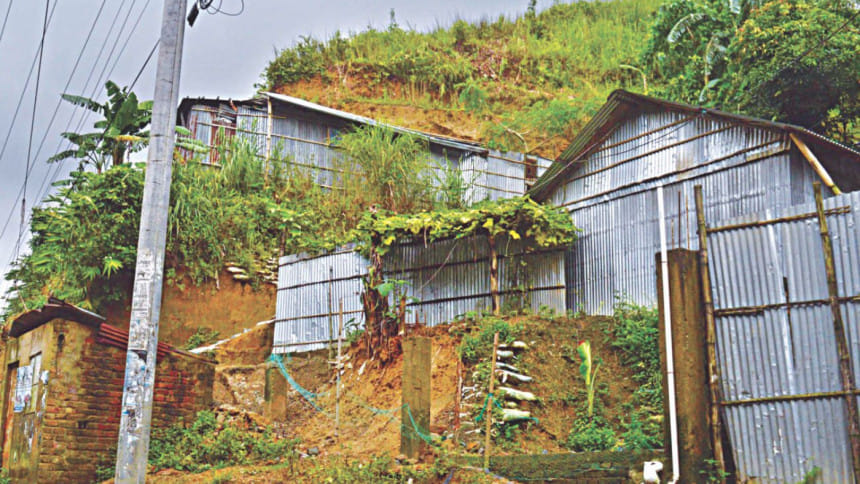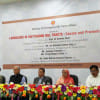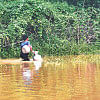What can we do?

The local administration has expressed helplessness as if it did not have the capacity to prevent the loss of lives in Friday's landslide at Jungle Salimpur in Sitakunda upazila of Chittagong.
That was its position even five weeks ago after the death of 170 people in the country's hill districts in rain-induced landslides. Environment experts at the time suggested that only permanent eviction of hill dwellers from risky areas would prevent such deaths.
Chittagong Deputy Commissioner Zillur Rahman Chowdhury said he had failed to evict vulnerable people because they were living on the hills with the blessings of influential people.
The building of houses there began around 20 years ago with protection from political and other influential people. “If the government makes any decision in this regard and people from all quarters cooperate [in the implementation], the administration can evict and rehabilitate the people.
“Do you know how much power a deputy commissioner has?” Zillur Rahman asked in response to queries about eviction drives conducted before the latest incident.
“In our country, a deputy commissioner doesn't have much power….I cannot do many things, even if I wish to do.”
Risky hill settlers do not want to leave their houses and belongings, the DC said, adding, “If someone puts his own life at risk, what can we do? We conducted awareness campaigns in the area to move the residents from risky hill slopes but our action went in vain."
The local administration has not yet formed any probe body to look into the recent incident.
Power and water connections to the area have been snapped following Friday's landslide killing five people so that those still living on the hill slopes feel compelled to leave the place.
But no one left their risky settlements.
According to officials, as many as 8,000 families live in Jungle Salimpur area with more than 32,000 people.
“It is not possible to evict so many people,” Sitakunda Upazila Assistant Commissioner (Land) Ruhul Amin said, adding that he was preparing a database of people living on hill slopes to help the government take further course of action.
Jungle Salimpur: A death trap for people on hill slopes
Meanwhile, this correspondent visited Jungle Salimpur area yesterday and found no road communication to the place from the upazila headquarters.
To reach the area, one at first has to go to Sher Shah Bangla Bazar in Chittagong city. A dilapidated, uneven and muddy road goes through the hilly area from Bangla Bazar to Salimpur School Field. The distance is more than seven kilometres.
Some old auto-rickshaws are the only vehicles to go that distance. One will experience a bumpy ride throughout and it's very risky for patients and elderly people.
Lotkan Shah Ghona is one and a half kilometres from the school field, and there is no way but to walk from there.
Walking up the hills on the journey, one will find houses built on slopes, which may face any disaster anytime during monsoon. Hills have been cut down indiscriminately to make rooms for them.
It's like a death trap.
Locals in the area said they had bought the possession of the land to build houses from the Chhinnamul Samiti.
Imran Hossain's house is just 40 feet below the house of Rafiq, which was smashed on Friday by mud that fell from the hilltop due to heavy rain.
Imran said he bought the land about four years ago and built the house.
“Most of the people here are from Noakhali, Lakhkhipur, Feni, Barisal and Rangpur,” he said, adding, “All are poor -- some work in readymade garment factories, some pull rickshaws or drive auto-rickshaws.”

 For all latest news, follow The Daily Star's Google News channel.
For all latest news, follow The Daily Star's Google News channel. 







Comments